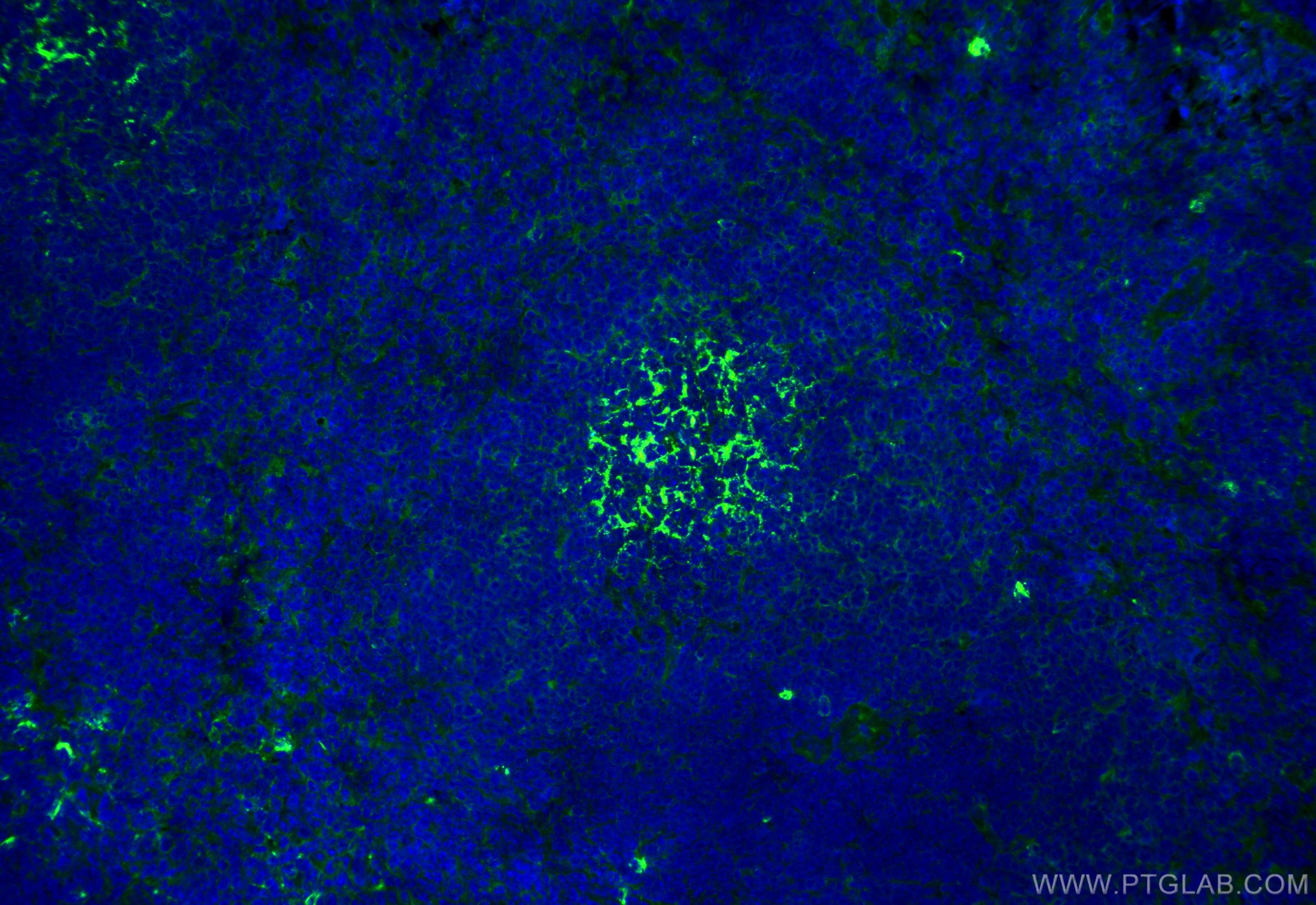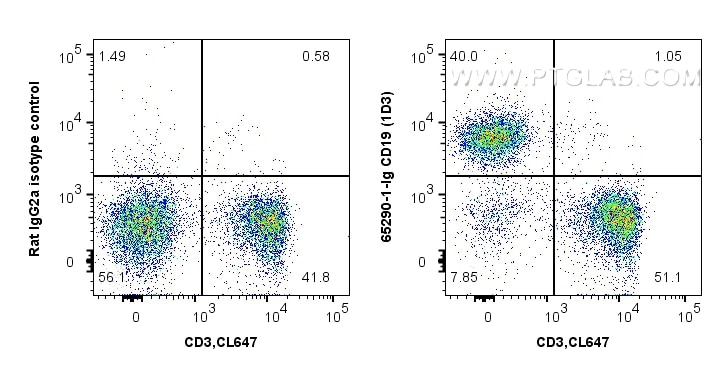Anticorps Monoclonal anti-CD19
CD19 Monoclonal Antibody for IF-Fro, FC
Hôte / Isotype
Rat / IgG2a, kappa
Réactivité testée
souris
Applications
IF-Fro, FC
Conjugaison
Non conjugué
CloneNo.
1D3
N° de cat : 65290-1-Ig
Synonymes
Galerie de données de validation
Applications testées
| Résultats positifs en IF-Fro | tissu splénique de souris, |
| Résultats positifs en cytométrie | splénocytes de souris |
Dilution recommandée
| Application | Dilution |
|---|---|
| Immunofluorescence (IF)-FRO | IF-FRO : 1:200-1:800 |
| This reagent has been tested for flow cytometric analysis. It is recommended that this reagent should be titrated in each testing system to obtain optimal results. | |
| Sample-dependent, check data in validation data gallery | |
Informations sur le produit
65290-1-Ig cible CD19 dans les applications de IF-Fro, FC et montre une réactivité avec des échantillons souris
| Réactivité | souris |
| Hôte / Isotype | Rat / IgG2a, kappa |
| Clonalité | Monoclonal |
| Type | Anticorps |
| Immunogène | Mouse CD19 Transfected Cell Line |
| Nom complet | CD19 antigen |
| Numéro d’acquisition GenBank | BC156767 |
| Symbole du gène | Cd19 |
| Identification du gène (NCBI) | 12478 |
| Conjugaison | Non conjugué |
| Forme | Liquide |
| Méthode de purification | Purification par affinité |
| Tampon de stockage | PBS with 0.09% sodium azide |
| Conditions de stockage | Store at 2-8°C. Stable for one year after shipment. |
Informations générales
CD19 is a 95 kDa type I transmembrane glycoprotein belonging to the immunoglobulin superfamily (PMID: 2472450). It is expressed by B cells and follicular dendritic cells. CD19 is up-regulated at the step of B-lineage commitment during the differentiation of the hematopoietic stem cell, it remains on during subsequent stages of differentiation until finally down-regulated during terminal differentiation into plasma cells (PMID: 8528044). CD19 is involved in B cell development, activation and differentiation. It is the dominant component for the signaling complex on B cells that includes CD21 (CR2), CD81 (TAPA-1) and CD225 and acts as a critical co-receptor for BCR signal transduction (PMID: 23210908).
Protocole
| Product Specific Protocols | |
|---|---|
| IF protocol for CD19 antibody 65290-1-Ig | Download protocol |
| FC protocol for CD19 antibody 65290-1-Ig | Download protocol |
| Standard Protocols | |
|---|---|
| Click here to view our Standard Protocols |



